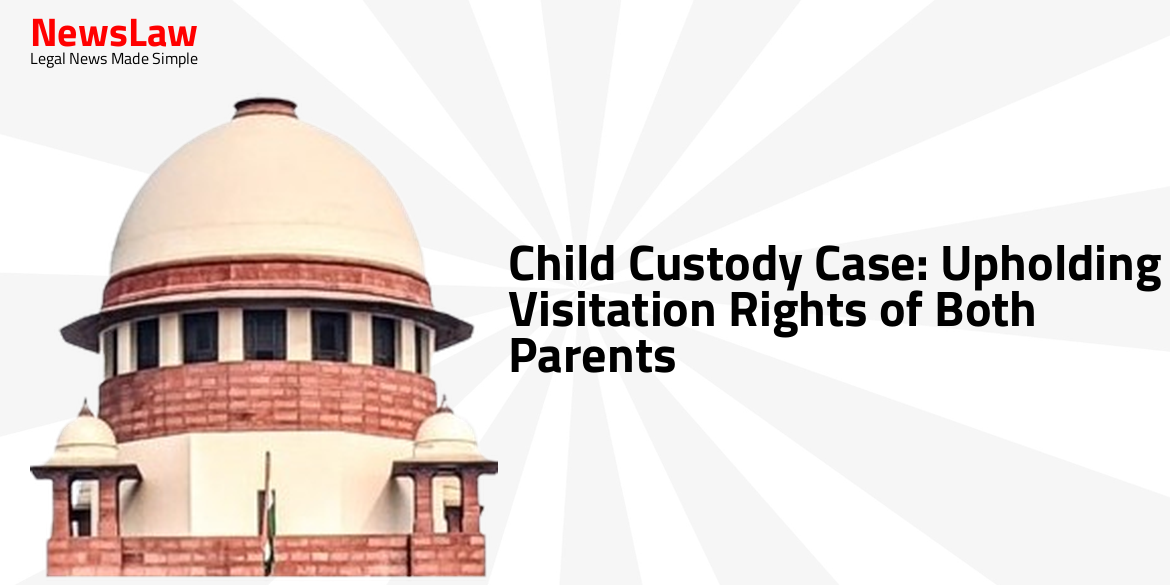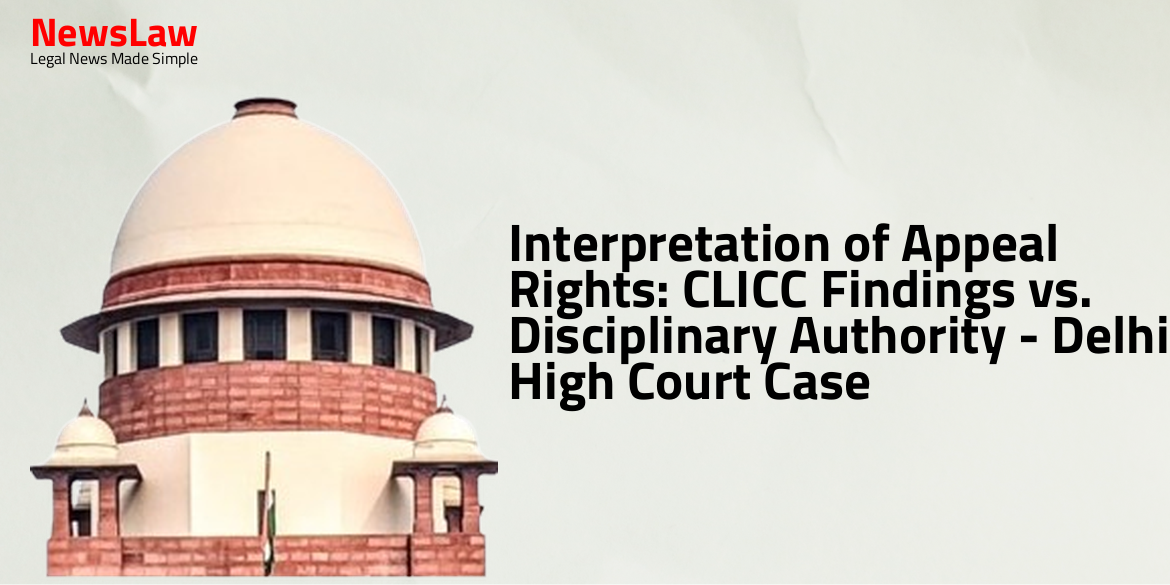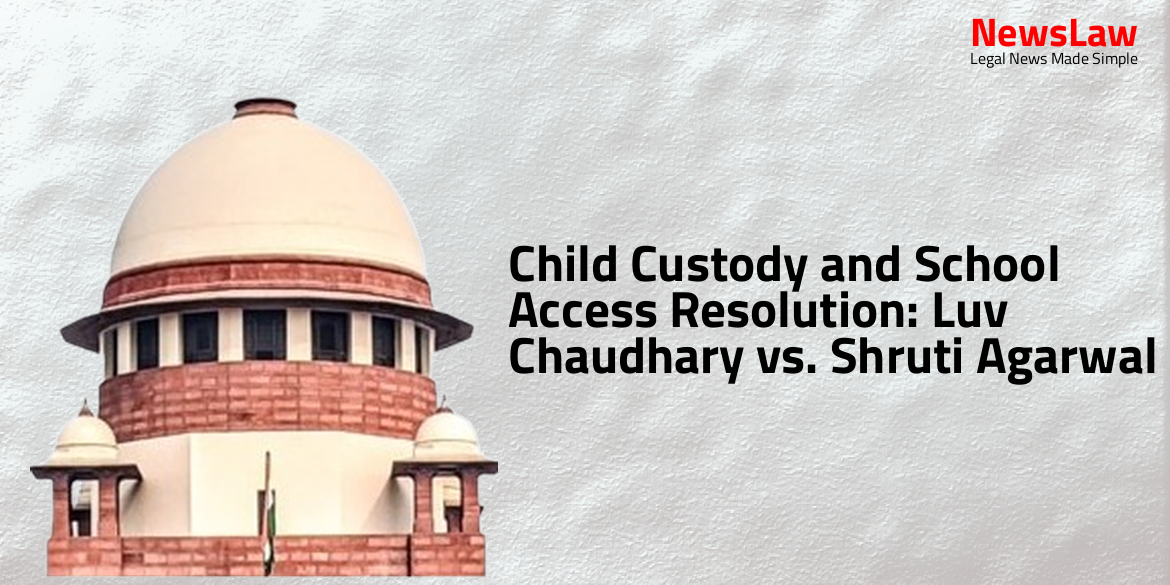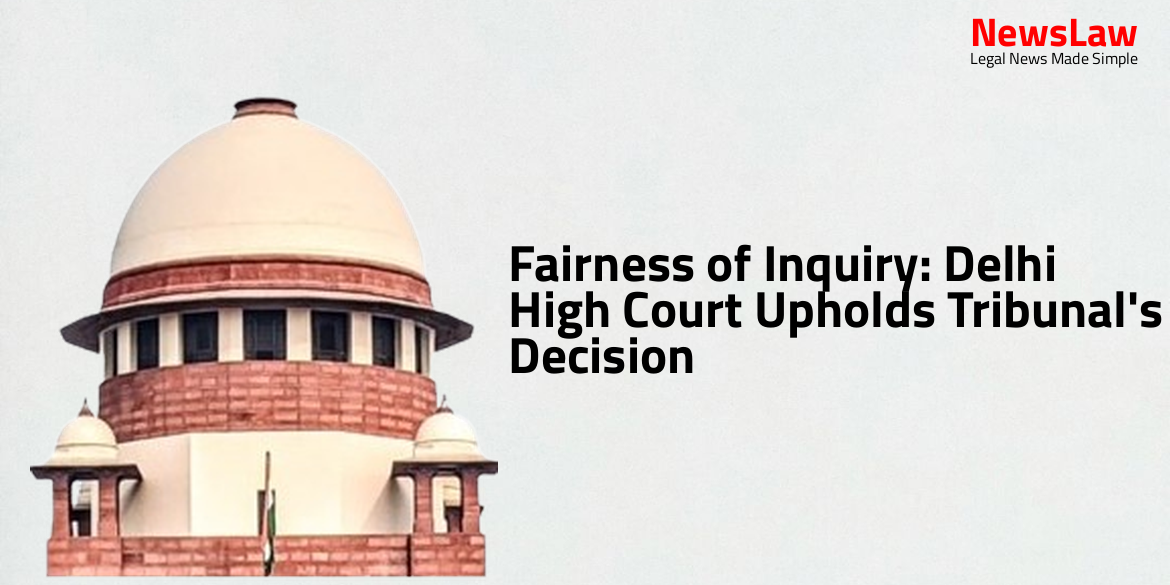In a significant ruling by the Delhi High Court, the rights of both parents in a child custody case have been upheld, prioritizing the best interests of the children involved. This judgement emphasizes the crucial role of maintaining regular interactions between the children and both parents, promoting a healthy and nurturing environment for their growth. The decision sets a precedent for similar cases, focusing on the well-being of the children amidst custody disputes.
Facts
- The appellant alleged that the respondent and her step-father deceitfully took the children from Delhi to Chandigarh on 13 December, 2019.
- The appellant claimed that the respondent repeatedly disrupted visitation by tutoring the children against the appellant and using the influence of her step-father, a retired DGP, Punjab.
- The appellant mentioned being harassed by security guards provided to the respondent’s step-father, which hindered interactions with the children.
- Evidence in the form of photographs and videos showed an affectionate bond between the children and the appellant.
- The report from a child counsellor indicated that the children displayed affection towards the appellant and did not ask for the respondent when alone with the appellant.
Arguments
- Non-custodial parent can’t be treated as a mere guest in children’s lives
- Deserves equal quality time with the children
- The respondent has been complying with the orders granting visitation rights to the appellant to meet the minor children.
- No disruption was caused during physical interaction between the children and the appellant at the DLF Promenade Mall.
- The respondent, working as a teacher, finds it difficult to take leave from school for travelling to Delhi to facilitate physical visitation.
- No threat was posed to the petitioner even when visiting Chandigarh, including when the respondent’s father served as DGP, Punjab.
Analysis
- The appellant has been seeking access to his children’s school information, including the school portal and WhatsApp Group.
- Virtual visitations were authorized in accordance with directions 15.
- The children initially expressed reluctance to physically interact with the appellant but later became more comfortable during virtual interactions.
- The children met the appellant at the DLF Promenade Mall and in the Children Room at the Mediation Centre under supervision of a child counsellor.
- The appellant was granted physical visitation rights on specific dates.
- The child counsellor recommended regular meetings at a neutral place for the children’s holistic development.
- The court emphasized the distinction between the child’s wishes and the best interests of the child in custody matters.
- Allegations made during contentious divorce proceedings may not always accurately reflect a parent’s ability to care for a child.
- The court has consistently permitted the appellant unhindered access to the children after interactions with them.
- The children were found to be precocious during a court interaction on 26 April, 2024.
- The best interests of the children must be considered for determining custody unless substantial misconduct is proven against one of the parents.
- Children of tender years require the love, affection, company, and protection of both parents.
- A child should not be deprived of the love and affection of either parent, even in cases of custody being granted to one parent.
- Every separation and reunion may have a traumatic impact on the child, hence careful consideration is necessary before deciding custody.
- Both parents should have visitation rights to ensure the child maintains contact with both parents.
- In extreme circumstances, one parent should only be denied contact with the child, and reasons must be assigned for such decisions.
- Courts must clearly define visitation rights when deciding custody matters.
- In the present case, despite the children expressing reluctance to meet their father, physical visitation with him is in the children’s best interests.
- Physical meetings between the father and children are essential for the children’s holistic growth and development.
- The appellant and children being in different cities poses a challenge, but the distance between Chandigarh and Delhi can be easily covered for visitation.
- The respondent has agreed to bring the children to Delhi during their school summer vacations for a week, and additional visits of at least four days during other school breaks are recommended.
- These arrangements will ensure the children continue to interact with the appellant on a regular basis.
- Virtual visitation for 5 to 10 minutes daily granted to the appellant will continue as per prior directions.
- The children will visit Delhi for a week each summer starting from June 2024.
- It is crucial to differentiate between the ‘wishes of the child’ and the ‘best interests of the child’ in cases involving children of tender age.
- Access to the school portal and WhatsApp Group is a standard and reasonable request
- The appellant has a right to be a part of the school community and have access to relevant communication channels
- Granting access would promote transparency and facilitate better communication between parents and teachers
- There is no justifiable reason to deny the appellant access to these platforms
Decision
- The children will visit Delhi for visitation in the Children Room attached to the Mediation Centre from 11 AM to 2 PM.
- The interaction between the father (appellant) and the children will be supervised by a child counsellor.
- The mother (respondent) must inform the father of the visitation dates two weeks in advance.
- The parties can mutually agree to change the venue in Delhi.
- The mother must provide the correct address to the father.
- The father has visitation rights in Chandigarh on one weekend every month at the Family Court.
- The mother and her family must allow the father access during visitation in Chandigarh.
- The father must inform the mother about his proposed visit dates to Chandigarh.
- The father must not give contradictory instructions to the school authorities regarding the children.
- The father is responsible for arranging reasonably priced accommodation in Delhi for the mother and children.
- The father will bear the round-trip expenses for the mother and children traveling between Chandigarh and Delhi.
- The children will also visit Delhi for four days during school breaks/long weekends.
- The Home Secretary in Chandigarh will ensure no interference from state authorities during visitation in Chandigarh.
Case Title: VINEET KUMAR LAKHANPAL Vs. NAMAN LAKHANPAL (2024:DHC:4021-DB)
Case Number: MAT.APP.(F.C.)-215/2022



